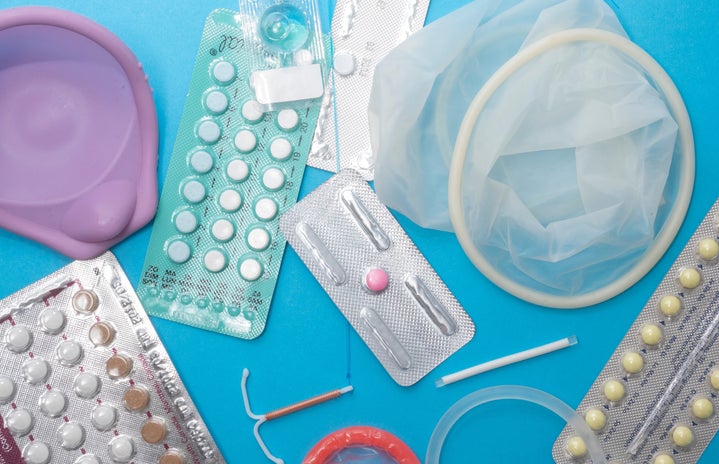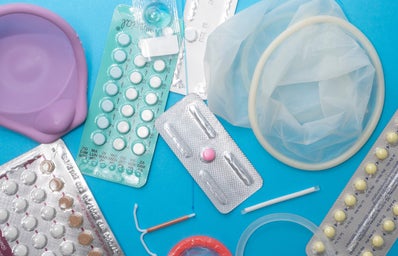The introduction of the contraceptive pill in 1960 revolutionised women’s lives. It became a source of empowerment, emancipation, and independence which opened up a plethora of opportunities that women were previously denied. They were able to pursue careers without fear of pregnancy, explore their sexuality, and most significantly, transcend the boundaries of conformity beyond a gendered mother role.
Not only have contraceptives and hormone supplements transformed women’s lives but they have also enabled the growth and expression of sexuality throughout society. Yet people globally, fueled by social media platforms such as TikTok, are deciding to boycott the contraceptive pill in fear of negative mental and physical side effects such as anxiety, depression, mood swings, and weight gain, to name a few.
Unfortunately, although unsurprisingly, the pill affects everyone differently, making it difficult to decide which form of contraception will work best for you. You may have a toxic relationship with contraceptives: deciding it doesn’t work for you, trying something different, finding that doesn’t work either, and going back to what you’re used to (you know the drill). Or you may have a very healthy relationship with your contraceptive, it just works for you simple as, in which case the rest of us are very jealous!
These differences were reflective of the conversations I had with women in my own life about their experience with different contraceptives:
My sister-in-law had the copper coil as it was a hormone-free option, but she said it was “painful and felt like [she] was haemorrhaging every month”. She then decided to try the patch but experienced “crazy panic attacks in the middle of the night”. My stepsister experienced a similar experience with the coil, however hers was “put in wrong and wonky so that’s why it was causing [her] agony every day”. Yet her mum has had the marina coil for over 20 years with no issues! Similarly, I’ve been on the progesterone-only pill for over a year now with no negative side effects. In fact, I have noticed my acne has improved, my mood swings have reduced, and I don’t have to endure a period every month, which for me has definitely been the best part.
Although these changes may be due to other factors such as growing out of puberty or a more refined skincare routine, I also credit my lack of symptoms to my efforts to balance my hormones through supplements. These are the supplements that I have found work best for my body and their benefits:
- Magnesium improves sleep quality, regulates hormone production, and supports healthy bones.
- Bee pollen is a phytoestrogen which Dr Lisa Jung explains is a plant compound that mimics oestrogen by “gently bind[ing] to the oestrogen receptors, which leads to very mild oestrogen effect” which may aid in regulating hormones in women.
- Evening primrose oil supports overall hormonal function within the body, containing omega-6 fatty acids, which also play a crucial role in immune function and brain function, as well as normal growth and development.
While there are ways to support your body with supplements while on hormonal birth control, many people are still opting for non-hormonal and non-invasive methods of contraception. I’ve recently learned about an app called Natural Cycles, which is an FDA-approved birth control method that uses daily monitoring of basal body temperature and a complex algorithm to track the stages of your cycle, and therefore how likely you are to get pregnant at a given time of the month. While I didn’t trust it at first, because it sounded way too risky, I’m starting to look into it more to understand how it actually works and am thinking about it as a potential future option.
The main message I want to leave you with from this article is that there are so many birth control options out there and you shouldn’t be afraid to ask questions and do your own research and experimenting when it comes to deciding what works best for you. The most important thing is that you’re making a fully informed decision that allows you to feel empowered to live your best sex life (safely!) and not give in to pressure from the status quo about what you should be putting in your body. Just remember, all of us girls are in it together, at least until the male birth control pill becomes a serious option!
For further information on contraceptives, I would recommend reading ‘Beyond the Pill’ by Dr Jolene Brighten and her other articles as well as ‘How the Pill Changes Everything’ by Dr Sarah E. Hill. For further dietary information, I would recommend following Dr Hazel Wallace @TheFoodMedic for more information on how your diet can influence your menstrual cycle. If this article has sparked any concerns, it is important to contact a healthcare professional for further advice.


